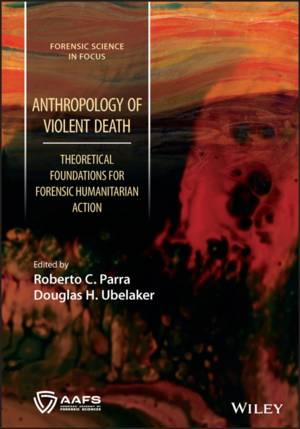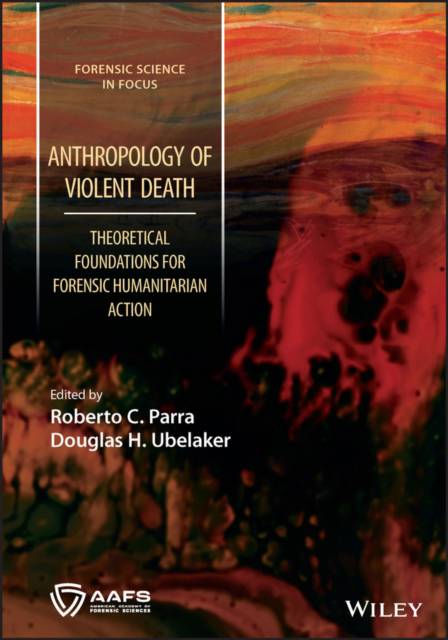
- Afhalen na 1 uur in een winkel met voorraad
- Gratis thuislevering in België vanaf € 30
- Ruim aanbod met 7 miljoen producten
- Afhalen na 1 uur in een winkel met voorraad
- Gratis thuislevering in België vanaf € 30
- Ruim aanbod met 7 miljoen producten
Anthropology of Violent Death
Theoretical Foundations for Forensic Humanitarian Action
Omschrijving
The first book to specifically focus on the theoretical foundations of humanitarian forensic science
Anthropology of Violent Death: Theoretical Foundations for Forensic Humanitarian Action consolidates the concepts and theories that are central to securing the posthumous dignity of the deceased, respecting their memories, and addressing the needs of the surviving populations affected. Focusing on the social and cultural significance of the deceased, this much-needed volume develops a theoretical framework that extends the role of humanitarian workers and specifically the actions of forensic scientists beyond an exclusively legal and technical approach.
Anthropology of Violent Death is designed to inspire and alerts the scientific community, authorities, and the justice systems to think and take actions to avoid the moral injury in society and cultures due to grave disrespect against humanity, its memories and reconciliation. Humanitarian forensic science faces the role of mediator between the deceased and those who are still alive to guarantee the respect and dignity of humanity. Contributions from renowned experts address post-mortem dignity, cultural perceptions of violent death and various mortuary sites, the forms and critical effects of the so-called forensic turn and humanitarian action, the treatment of violent death in post-conflict societies, respect for the dead under International Humanitarian Law (IHL) and Islamic law, the ethical management of the death of migrants, and much more.
- In an increasingly violent world, this volume, develops a theoretical component for death management in scenarios where humanitarian action is required
- Facilities better understanding between the social sciences, the forensic sciences, and justice systems in situations involving violent death
- Discusses the latest theories from leading scholars and practitioners to enhance the activities of forensic scientists and authorities who have the difficult responsibility of making decisions
- It provides a better understanding of the humanitarian and cultural dilemmas in the face of violent death episodes, and the unresolved needs of the dignity of the deceased during armed conflicts, disasters, migration crises, including everyday homicides
Anthropology of Violent Death: Theoretical Foundations for Forensic Humanitarian Action is an indispensable resource for forensic scientists, humanitarian workers, human rights defenders, and government and non-governmental officials.
Specificaties
Betrokkenen
- Uitgeverij:
Inhoud
- Aantal bladzijden:
- 432
- Taal:
- Engels
- Reeks:
Eigenschappen
- Productcode (EAN):
- 9781119806363
- Verschijningsdatum:
- 13/02/2023
- Uitvoering:
- Hardcover
- Formaat:
- Genaaid
- Afmetingen:
- 170 mm x 246 mm
- Gewicht:
- 1056 g

Alleen bij Standaard Boekhandel
Beoordelingen
We publiceren alleen reviews die voldoen aan de voorwaarden voor reviews. Bekijk onze voorwaarden voor reviews.










